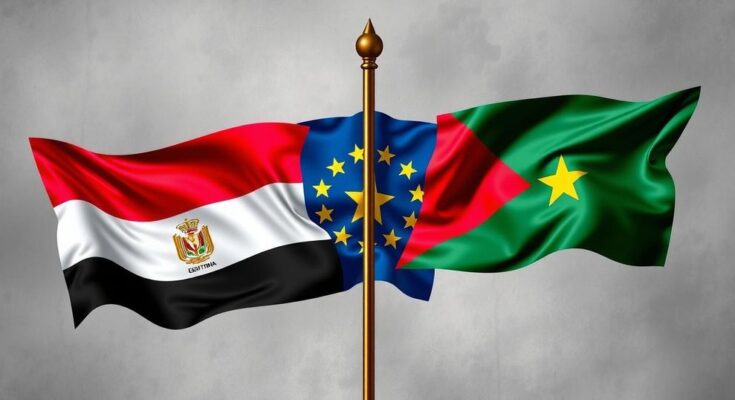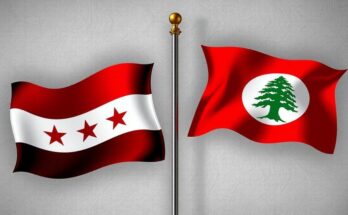Egypt is bolstering alliances with Eritrea and Somalia to counter escalating Ethiopian influence, highlighted by a summit in Asmara where military cooperation was emphasized. This initiative is largely motivated by tensions over the GERD and Ethiopia’s maritime agreements with Somaliland. The alliance aims to reshape regional power dynamics amid ongoing disputes over water rights and security threats.
In response to perceived threats from Ethiopia, Egypt is enhancing its strategic alliances with Eritrea and Somalia, as evidenced by a recent summit held in Asmara in October 2024. During this meeting, the leaders of the three nations committed to fostering military cooperation and ensuring stability within the region. Egypt has pledged to support Somalia’s counterterrorism initiatives by contributing troops to the African Union (AU) mission, a direct challenge to Ethiopia’s growing influence in the Horn of Africa.
The formation of this alliance is largely influenced by the ongoing tensions between Egypt and Ethiopia over the Grand Ethiopian Renaissance Dam (GERD), which Cairo believes jeopardizes its water security. Additionally, Ethiopia’s new maritime agreement with Somaliland has raised further concerns for both Egypt and Somalia, drawing Somalia closer to Egypt and Eritrea’s sphere of influence. This trilateral summit signifies a calculated move by Egypt to reinforce its authority in the region amidst rising tensions surrounding Nile water rights and access to the Red Sea.
Furthermore, Ethiopia’s aspirations to regain maritime access through its arrangements with Somaliland have alarmed Somalia, which views this as a violation of its territorial integrity. In response, Egypt and Eritrea are strengthening their military collaboration with Somalia, which includes direct arms supplies and the formation of a joint foreign ministers’ committee to facilitate strategic partnership across various sectors. With ongoing tensions, this alliance has the potential to alter the balance of power in the Horn of Africa, potentially sparking heightened military and diplomatic confrontations in the near future.
The geopolitical landscape of the Horn of Africa has been markedly influenced by the longstanding tensions between Egypt and Ethiopia, primarily driven by disputes over water rights related to the Nile River. Egypt’s concerns regarding its water security have been exacerbated by Ethiopia’s construction of the Grand Ethiopian Renaissance Dam (GERD), which is perceived as a direct threat to the Nile’s flow. Additionally, Ethiopia’s recent agreements with Somaliland regarding maritime access have raised alarms, prompting Egypt to reinforce its ties with Eritrea and Somalia. This context is vital for understanding the motivations behind the tripartite alliance formed amidst growing regional tensions.
In conclusion, the burgeoning alliance between Egypt, Eritrea, and Somalia represents a strategic countermeasure against Ethiopia’s expanding influence in the Horn of Africa. As the nations reinforce their military cooperation and address common security threats, particularly concerning the GERD and maritime rights, the region may experience significant shifts in power dynamics. The coming months are expected to be critical in determining the future of this alliance and its implications for regional stability.
Original Source: www.garoweonline.com




